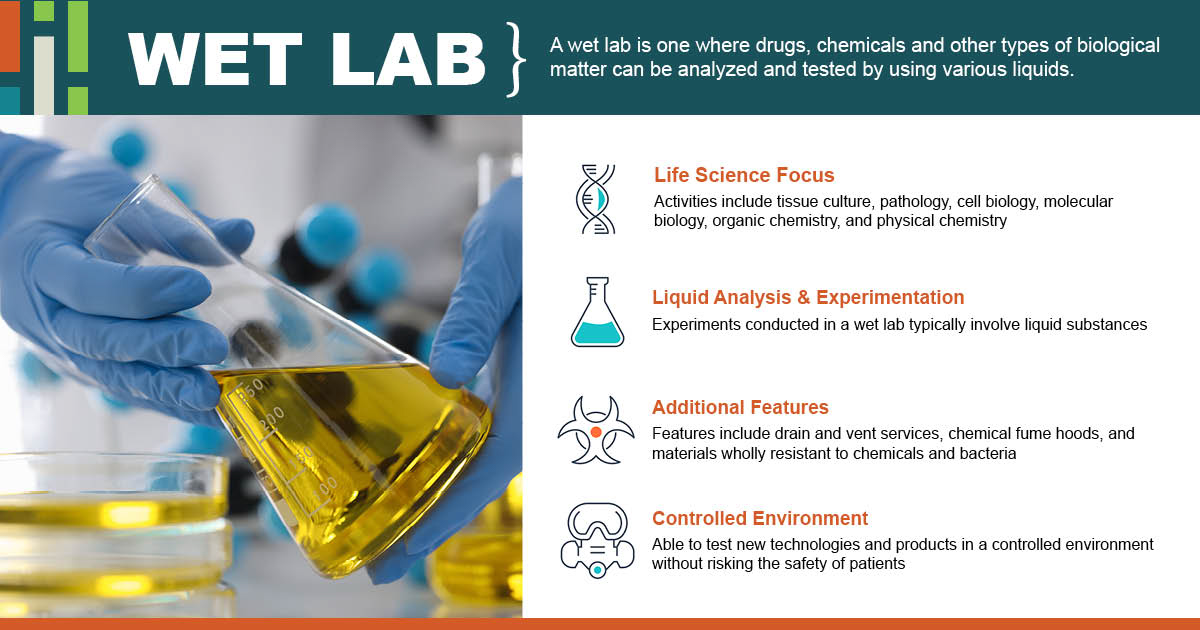With new lab space for biotech coming to the Roanoke and New River Valleys, you may be hearing more about wet and dry lab space. But what’s the difference between the two? Whether you’re new to the terms or are trying to figure out what type of lab space is best for your tech startup, we’ve got you covered. Read on to learn about the specifics of wet lab space.
What is a Wet Lab?
A wet lab is a laboratory space designed to test chemicals, biological matter, and drugs. In other words, all experiments in a wet lab deal with liquid substances. Due to the nature of these types of experiments, wet lab equipment and design places a high priority on safety.
These labs require water, direct ventilation in the form of chemical fume hoods, appropriate plumbing, refrigeration, and other specialized equipment like showers, eye washers, fire alarms, and extinguishers. Easy-to-clean countertops, sinks, and benches are also important.
As the names imply, wet labs contrast with dry labs, which are suitable for theoretical or computational work and deal primarily with engineering, robotics, or simulations.
What Types of Research Can you do in a Wet Lab?
Experiments dealing with liquid substances can be done in a wet lab. Biotech startups often make use of wet lab space when exploring ideas and solutions related to life sciences. These could include explorations in pharmaceuticals, organic and physical chemistry, biomedical technologies, cell biology, or molecular biology.
Much of the research conducted in a wet lab includes quantitative chemical analysis via titration and the characterization of enzymes with mass spectrometry.
Using wet lab space for this experimentation is essential because the equipment, design, and processes help reduce the potential risk involved in handling hazardous liquids and allow for testing in a controlled environment.
What are the Advantages of a Wet Lab?
The main advantage of a wet lab is access to a controlled environment. A wet lab’s design and specialized equipment allow scientists to reduce environmental variables that could otherwise skew results.
Additionally, wet labs may also offer opportunities to work with top-of-the-line equipment that makes research run more smoothly. This might include high-end freezers or refrigeration, biosafety cabinets, and other equipment that you may not otherwise have access to.
Learn More
The region’s biotech industry is growing almost daily, from startups to projects that spur from research within the university or medical community. New wet lab spaces will open in Blacksburg at the Virginia Tech Corporate Research Center later this year (with short- and long-term leases available.) Visit their website to learn more.



